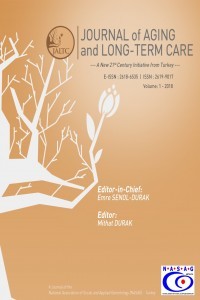
Journal of Aging and Long-Term Care
Yazarlar: ["Sharon MEDCALF", "Matthew A. BEACOM", "Anna HANSEN", "Leslie GUNNİNG-SCOFİELD", "Shireen S. RAJARAM"]
Konular:-
DOI:10.51819/jaltc.2021.1052026
Anahtar Kelimeler:Long-Term Care,Mentorship,Pandemic,Preparedness
Özet: Long-term care facilities (LTCF) in the U.S. rank among the most profoundly affected industries from the Covid-19 pandemic. LTCF staff faced insurmountable challenges in their attempts to contain outbreaks and mitigate transmission. Changes in workflow processes were unprecedented, increasing stress on both providers and on fragile residents. LTCF facility representatives, already overwhelmed with the demands of the facility, were struggling to interpret the latest and ever-changing recommendations and to configure guidelines to their own facility operations and infrastructure. Given the isolated nature of rural (and some urban) long term care facilities, combined with the struggling industry, a one-to-one mentorship program seemed like a viable and welcome solution. Partnerships with professional associations were established to recruit facilities interested in establishing a mentor relationship. Mentors were given a short orientation to the program and then paired with a long-term care facility representative. Daily mentor meetings were conducted in the initial weeks of the program and then reduced to 3 times per week. Program evaluation was conducted mid-way through the program through a series of focus groups with mentors and mentees in separate sessions and the qualitative results are the subject of this paper. Feedback from both mentor and mentees was overwhelmingly positive, which concurs with systematic reviews of other published mentorship programs. Given that solutions for future planning should be based on lessons learned from previous crises, mentees in this program provided sound advice for measures that should be implemented regardless of the establishment of a formalized mentorship program. More comprehensive mentor orientation, mentee peer-peer interaction and engagement, consolidation of ever evolving recommendations, and procedural templates were outcome program recommendations. This mentorship program serves as a national call to build an infrastructure now to provide valuable support for those who will dedicate their professional lives to protecting our vulnerable aging generation.